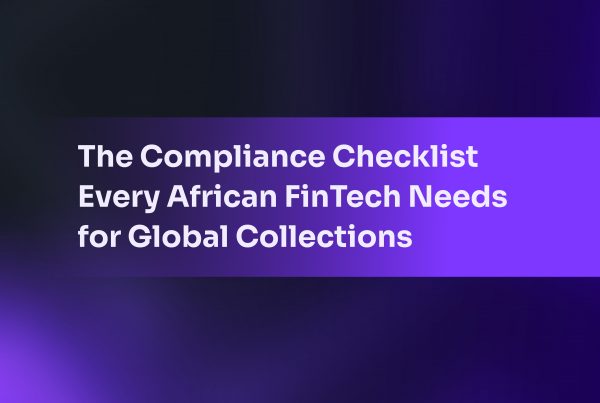Fintech companies in Africa are solving a variety of problems with these products.
The rapid adoption of technology in Africa has made the continent the second-largest banking market globally in terms of growth and profitability (as seen in a recent paper by FT Partners). For decades, Africa had limited access to traditional financial services, but the rapid increase in mobile phone usage and internet penetration is solving this problem.
That is why fintech has dominated the tech industry in Africa. It has provided solutions for everyone in the ecosystem; reduced operational costs for traditional banks and accelerated financial inclusion, especially in sub-Saharan Africa.
Reliable forecasts suggest continuous increase with rapid population growth and several of the world’s fastest-growing economies in Africa. These have presented significant and attractive market opportunities for fintech companies on the continent.
Players in the fintech industry have taken advantage of these opportunities, with five out of seven tech unicorns in Africa highlighting the success of this sector.
These companies have found tremendous success by delivering various products that continue to solve real-life problems.
We look at seven sub-sectors in the African fintech industry.
1. Reduce unnecessary outflows
A neobank is basically a bank without a physical distribution; its distribution is tech-driven-via apps, cards and USSD. In recent years, Africa-focused neobanks have joined in on the wave of the growing influence and success of online banking globally.
They are attracting huge investments too. According to TechCrunch, digital banks are among the biggest recipients of VC investments in fintech. Several analysts have revealed that noebanks in Africa are attracting many first-time banking customers more than the traditional banks. With 300 million people still unbanked in Africa, neobank is certain to continue to be a necessary fintech product.
Few examples of neobanks in Africa include Kuda, TymeBank and Carbon.
2. Blockchain and Cryptocurrency
The growing popularity of cryptocurrencies in Africa has given new meaning to the fintech industry. Although there is still plenty of scepticism in this region, especially from regulators, the increase in crypto usage is disrupting traditional financial systems.
The possibilities of transacting business and expanding sales with the exchange of cryptocurrencies have given rise to fintech companies that operate in that space.
Africa has welcomed blockchain and cryptocurrency with open arms. Nigeria, Kenya, and South Africa are among the top-10 countries for cryptocurrency use according to Chainalysis, a blockchain data platform.
Regional inflation, weak currencies, high unemployment rates and economic uncertainty have fuelled the growing adoption of crypto and opportunities abound in remittance and cross-border payments. A slew of fintech companies in Africa exudes the spirit of this new movement.
Few examples of fintech companies in this space are Quidax, Nestcoin and Empowa.
3. Stock trading
For Africa’s young population, the traditional ways of investment have never been appealing; that is why a growing number of fintech companies are offering these opportunities. Traditionally, you would have to go to stock exchanges and the need for a stockbroker to facilitate trades. This process has become cumbersome and tiring for millennials needing digital options. It’s even more difficult and expensive for foreign stocks.
Fintech companies came on to solve these challenges by offering investment opportunities to willing users with fractional investing, which Robinhood pioneered. With access to securities democratised, young Africans have the opportunities to invest in stocks and assets more accessible than ever before.
Examples of stock trading platforms are Bamboo and Chaka.
4. Wealth management
Saving and wealth management is not new to Africans, who have practised them for decades via informal means. There’s Ajo, a traditional savings scheme where a group saves money and borrows to each other in turn. There is also the piggy bank style, traditionally called Kolo in Nigeria.
The need for digital versions of savings and wealth management gave rise to fintech companies.
Examples of these companies are PiggyVest and Cowrywise.
5. Lending
Although some other fintech companies, especially neobanks offer credit, there are other platforms specifically meeting these demands. These digital lenders have come for young Africans who have no access to capital due to stringent regulations and slow processes with traditional lending platforms.
Examples of lending fintech companies are FairMoney, Tala and Renmoney.
6. Crowdfunding
With the poverty rate in Africa still at a high, there is a pressing need for crowdfunding to help people in need. Crowdfunding is done by collecting small sums from different persons to fund personal and business needs. Crowdfunding for personal needs-financial and medical emergencies (donation-based) has been the most popular on the African social mediasphere.
Other types of crowdfunding have emerged. In Nigeria, reward-based crowdfunding has gained ground, especially in agriculture, driven by fintech startups to leverage online donations to help farmers raise funds. For this type of crowdfunding, donors expect a return on investment (ROI).
7. Payments
For local or cross-border needs, payment is one of the financial difficulties that fintech is solving. From remittances to business-consumer -to-business (C2B) and business to business (B2B) payments-fintech companies have created products to simplify sending and receiving money.
Mobile payments platforms are one of today’s most widely used fintech products in Africa.
There’s also remittance, money sent by migrants to families back home, providing a financial lifeline to millions of African households. Fintech has created products to simplify the process for customers, making it easier for migrants to send money home to their families.
For payments that cater to the needs of businesses, fintechs and platforms, companies have built products to make the processes easier.
Fincra is one of those companies; Fincra is a reliable online and offline payment infrastructure that helps fintechs, platforms, and global businesses across Africa easily process local and international payments.
Its key offerings include payment solutions that help businesses accept and send payments globally, a platform to launch agency banking businesses encouraging financial inclusion, and building excellent applications through our easy-to-integrate payment APIs.
The core of everything Fincra does is building infrastructure that makes sending and receiving value globally as easy as sending a text message.
You can try out our products by signing up for a demo here.




